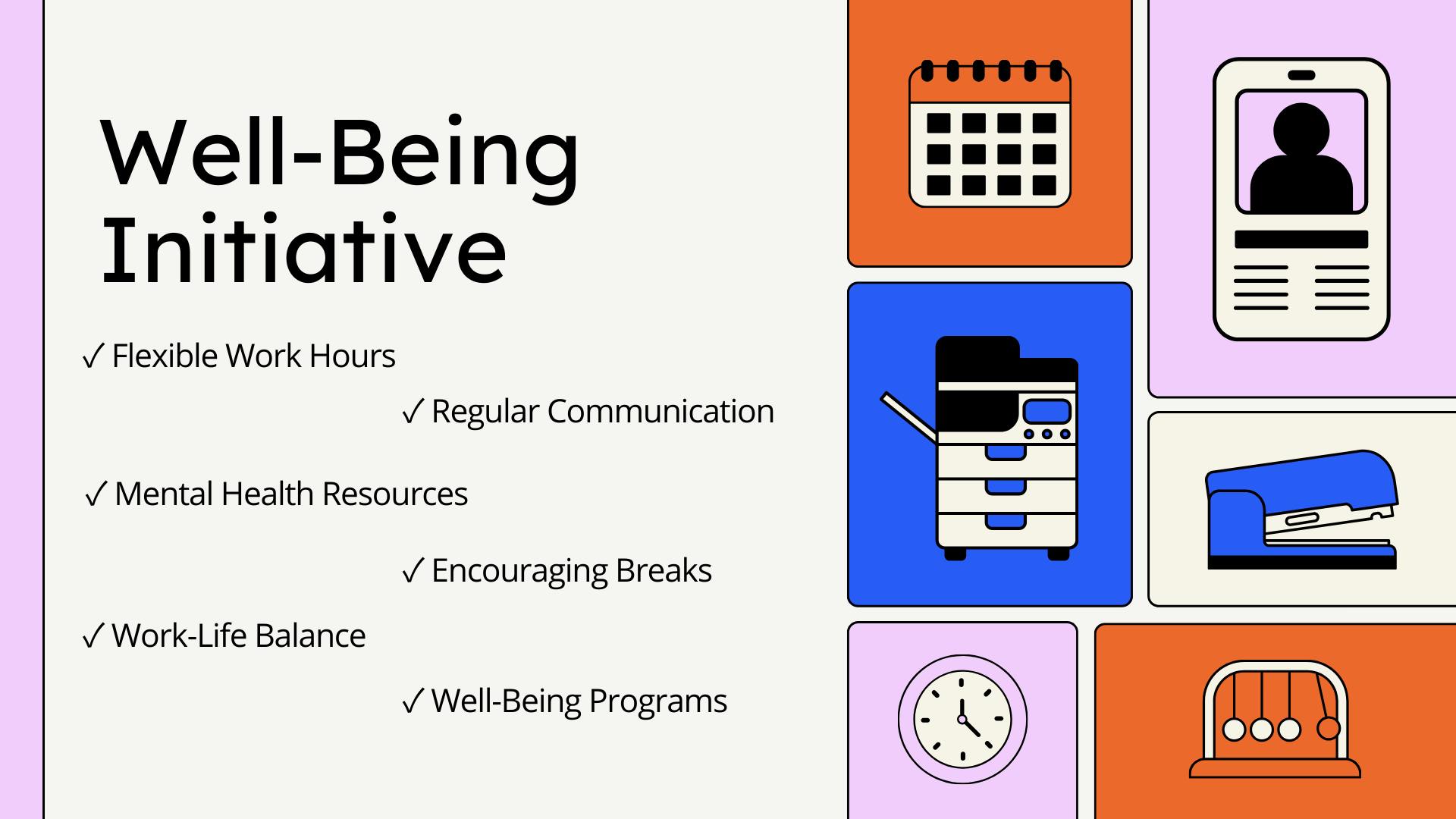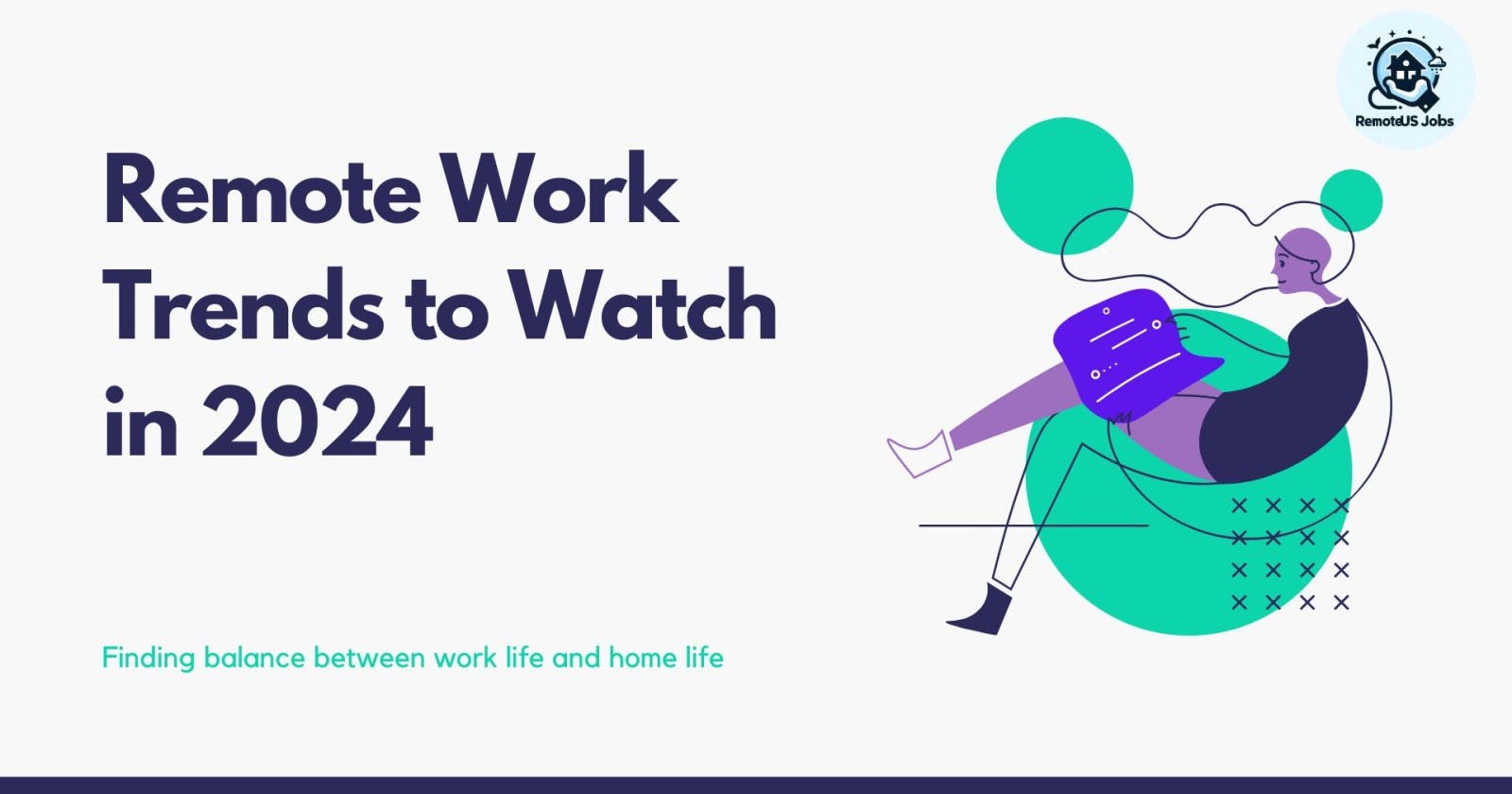Hey There, Welcome to the first latest blog post to check remote work trends to watch in 2024. The remote work has gone through significant transformation which is accelerated by global events like COVID-19 pandemic. Since then, remote work has almost normalized at a rapid pace. Organizations are redefining traditional workplace structure, adapting hybrid models and integrating advanced technologies to make remote collaboration easier. And that’s why it's really becoming important to stay updated with remote work trends to adapt in 2024. Remote work trends offer insights into evolving work environments, employee expectations, and technological advancements like perfect ergonomic desk setup. By understanding these trends, businesses can optimize their operations, enhance employee well-being, and remain competitive in a rapidly evolving market. You need to be productive while working from home, you've to keep up with these changes helps people and companies succeed in remote work. As remote work changes, staying updated on new trends is crucial for everyone.
Remote US Jobs Hiring
Renewals Manager @ GitLab
🚀 80% Flexibility 🌎 Full Remote from the US 📅 Posted 7 days ago
Executive Assistant @ BOLDLY
🚀 80% Flexibility 🌎 Part-time Remote from the US 📅 Posted 23 days ago
Front End Engineer @ GitLab
🚀 85% Flexibility 🌎 Fully Remote from Anywhere 📅 Posted 30+ days ago
Senior Director, Public Policy @ GitLab
🚀 85% Flexibility 🌎 Fully Remote from Anywhere 📅 Posted 30+ days ago
Head of Credit Policy @ Revolut
🚀 77% Flexibility 🌎 Full-time Remote from the US 📅 Posted 30+ days ago
Incubation Engineer, AI @ GitLab
🚀 80% Flexibility 🌎 Remote from the US 📅 Posted 30+ days ago
We’ve shared this job as per current listing on the amazing Jobgether website. In future, it might be removed as if positions get closed. If you want to stay up-to-date with hiring information in the US, Subscribe to our RemoteUSJobs Newsletter. Our blog and our newsletter is only for people living in the United States & we’ll provide only remote US Jobs hiring information.
Hybrid Work Model
Hybrid work model involve a combination of remote work and in-office work, providing employees with flexibility while maintaining a physical workspace. Companies are adopting these structures to meet the diverse needs of their workforce and adapt to changing work dynamics.

Benefits:
Improved Work-Life Balance: Hybrid work allows employees to better balance their personal and professional lives.
Increased Productivity: It enables employees to work in environments where they are most productive, leading to higher efficiency.
Flexible Scheduling: Employees can customize their work schedules to suit their preferences and commitments.
Cost Savings: Companies can save money by not having to pay for big office spaces.
Challenges:
Communication and Collaboration: Balancing remote and in-office communication can pose challenges, affecting team cohesion.
Tech Infrastructure: Ensuring seamless access to technology and resources for both remote and in-office employees requires robust IT infrastructure.
Employee Engagement: Maintaining a sense of belonging and engagement among remote workers can be challenging.
Management Complexity: Managing a hybrid workforce requires different approaches to leadership and supervision.
Well-being Initiatives
With the rise of remote work, companies are increasingly prioritizing employee well-being to ensure mental health and productivity. Strategies implemented to support employee mental health in remote work environments include:

Flexible Work Hours: Offering flexibility in work schedules allows employees to manage personal commitments, reducing stress.
Regular Communication: Establishing clear communication channels and regular check-ins help maintain connections and provide support.
Mental Health Resources: Providing access to mental health resources, such as counseling services or wellness programs, supports employees' emotional well-being.
Encouraging Breaks: Promoting regular breaks during the workday fosters relaxation and reduces burnout.
Work-Life Balance: Encouraging boundaries between work and personal life ensures employees can disconnect and recharge.
Well-being Programs: Implementing well-being programs focusing on mindfulness, stress management, and resilience training aids in overall mental health.
Companies recognize that investing in employee well-being not only enhances individual satisfaction but also boosts productivity and contributes to a positive work culture.
Other Emerging Trends
Flexibility: The trend of flexibility in work arrangements continues to grow, with companies expanding options for flexible and remote work. This shift allows employees to manage their schedules effectively, leading to improved work-life balance and higher job satisfaction.
Global Talent: Remote work opens doors for companies to tap into a global talent pool. With geographical barriers diminishing, businesses can access diverse skill sets and perspectives from around the world. This trend enhances innovation, creativity, and competitiveness.
Continuous Learning: Ongoing skill development is crucial for remote workers to stay competitive in their roles. With rapid advancements in technology and evolving job requirements, companies emphasize continuous learning initiatives to upskill and reskill their remote workforce.
Networking: Remote professionals engage in online communities and networking platforms to connect with peers, share knowledge, and seek opportunities. Virtual networking fosters collaboration, professional growth, and a sense of belonging, compensating for the lack of face-to-face interactions typical in traditional office settings.
These emerging trends underscore the evolving nature of remote work and its profound impact on workforce dynamics, organizational culture, and business operations.
Technological Advancements
Remote Access Software: Once considered a luxury, remote access software has become a necessity for businesses operating in remote or hybrid environments. These tools facilitate seamless communication, collaboration, and access to essential resources from anywhere, ensuring productivity and efficiency.
Enhanced Cybersecurity Measures: With the rise of remote work, ensuring cybersecurity has become paramount. Enhanced cybersecurity measures, including robust encryption, multi-factor authentication, and regular security audits, are crucial for safeguarding sensitive data and protecting remote work environments from cyber threats.
Integration of Artificial Intelligence: Artificial Intelligence (AI) plays a significant role in boosting remote work productivity and efficiency. AI-powered tools automate repetitive tasks, provide data-driven insights, and streamline workflows, allowing remote workers to focus on higher-value tasks and achieve more in less time.
These technological advancements are reshaping the remote work landscape, enabling businesses to adapt to new work paradigms and thrive in an increasingly digital world.
Future Outlook
Predictions for the Future of Remote Work: Experts anticipate that remote work will continue to evolve beyond 2024, with a greater emphasis on flexibility, technology integration, and work-life balance. The trend is expected to see an increase in hybrid work model, where employees have the flexibility to work remotely part-time while also having access to in-person collaboration when needed.
Anticipated Benefits:
Flexibility: Remote work offers employees the freedom to manage their schedules and work from locations that suit them best, leading to improved work-life balance and job satisfaction.
Productivity: Many studies suggest that remote workers are often more productive due to fewer distractions and the ability to design their work environments according to their preferences.Anticipated Challenges:
Communication and Collaboration: Maintaining effective communication and collaboration in remote settings can be challenging, leading to potential misunderstandings and delays in project completion.
Isolation and Burnout: Remote workers may experience feelings of isolation and burnout due to the lack of social interaction and difficulty in disconnecting from work.
The future of remote work trends holds promise in terms of flexibility and productivity, but it also presents challenges that organizations must address to ensure the well-being and effectiveness of remote workers.
Wrapping Up!
As we look ahead to the remainder of 2024, several key remote work trends emerge:
Hybrid Work Models: The rise of hybrid work arrangements, blending remote and in-office work, offers flexibility and fosters employee satisfaction.
Employee Well-being: Companies are increasingly focusing on supporting the well-being of remote employees, recognizing the importance of mental health and work-life balance.
Technological Advancements: Remote access software, enhanced cybersecurity measures, and the integration of artificial intelligence are becoming essential tools to facilitate remote work and ensure productivity.
It's imperative for individuals and organizations to adapt to these changing work dynamics:
Embrace Flexibility: Individuals should embrace flexibility in work arrangements, leveraging hybrid models to optimize productivity and well-being.
Invest in Technology: Organizations should invest in remote work technologies to streamline processes and enhance collaboration among distributed teams.
Prioritize Well-being: Both individuals and organizations should prioritize mental health and work-life balance to sustain long-term remote work success.
You should stay up-to-date with these trends and fostering a culture of adaptation and innovation, individuals and organizations can thrive in this volatile era of remote work.
Soon we're coming with case studies of job boards out there on the internet and which are the best for audience for what purpose, stay tune! Subscribe to our Newsletter & follow us on Hashnode to never miss any updates. Let us know in the comments how can we help you? Get Access to 200+ Best Remote Job Board Database.
FAQs
1. Will work from home continue in 2024?
Yes, remote work is expected to continue in 2024 due to its proven benefits and increasing adoption by companies.
2. What is the hybrid work trend in 2024?
The hybrid work trend in 2024 involves a blend of remote and in-office work, offering flexibility and collaboration.
3. What is the future of remote work?
The future of remote work is promising, with advancements in technology enabling seamless collaboration and flexibility.
4. What is the prediction for working from home?
Predictions suggest that working from home will remain prevalent, with more companies embracing remote work options.
5. Which is better work from office or work from home?
Whether working from the office or home is better depends on individual preferences, job requirements, and company culture.

